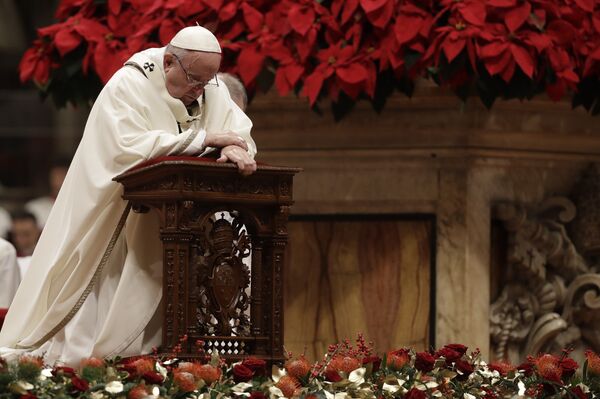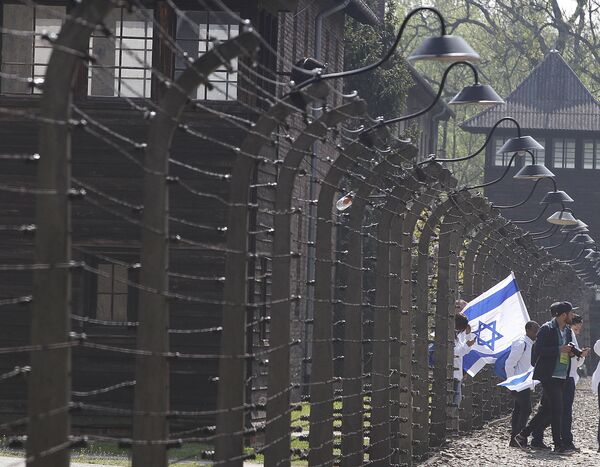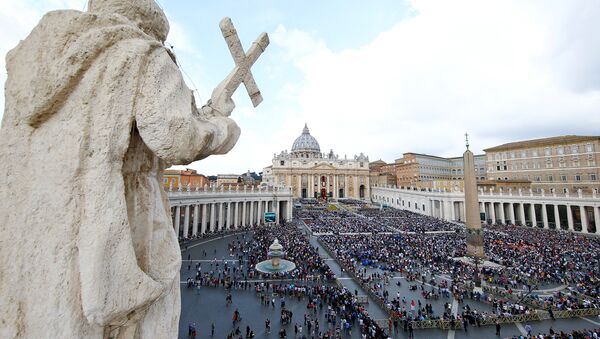A year after Pope Francis first announced the move, the Vatican is finally unsealing archives that promise to shed light on one of the most controversial popes, Pius XII, who has been accused by critics of failing to publicly condemn the genocide of Jews during the Holocaust in WWII.
Texts and letters relating to Pius XII’s pontificate will be made available on 2 March, on the 80th anniversary of Eugenio Pacelli’s election to the papacy, initially to a small number of researchers.
While it is tradition for the Vatican to wait 70 years after the end of a pontificate to allow access to related documents in its archives, in the case of Pius XII, who died on 9 October 1958, Pope Francis is seen by many as having bowed to pressure to allow scholars access while Holocaust survivors are still alive.
As far back as in 2006, Pope Benedict XVI authorised a Vatican inventory in preparation for the process.

When announcing his decision to open the archives a year ago, in March 2019, Pope Francis declared that “the Church is not afraid of history but, rather, she loves it, and would like to love it more and better, as God loves it!”
Cardinal José Tolentino Calaca de Mendonca, the Vatican’s archivist and librarian, told reporters on 20 February at a press conference for the opening of the Pius XII documentation:
“The opening of the archives is decisive for the contemporary history of the church and the world.”
First granted access will be scholars from the American Holocaust Memorial Museum, Israel's Yad Vashem World Holocaust Remembrance Centre, and representatives of the Jewish community in Rome, as researchers vie throughout the year for about 20 places available in the central archives, according to Bishop Sergio Pagano, who heads the Vatican's central "apostolic archives".
Pius XII Controversy
Pius XII, or Eugenio Pacelli, was Pope from 1939 to 1958 and remains a controversial figure for reportedly never publicly condemning the Nazi regime, even following the fall of Benito Mussolini and Adolph Hitler.
A former diplomat of the Holy See in Germany, he was elected on 2 March, 1939, just six months before World War II erupted in Europe.

In 1933, as papal envoy to Germany, Pius XII witnessed the rise of Nazism, while negotiating a concordat between the Catholic church and Germany.
In December 1942, Pius XII spoke in cryptic terms about the suffering of the Jews in a much-debated Christmas radio message given in Italian and aired just once.
Here he made reference to "hundreds of thousands of people who, without any fault of their own and sometimes for the sole reason of their nationality or race, were doomed to death or gradual extermination".
“The only ones who heard it were the Nazis," award-winning German religious historian Hubert Wolf is quoted by AFP as saying, adding the radio waves were scrambled and if he really wanted to reach the German faithful he could have spoken in German.
The expert believes the documents should also contain records of appeals for help from Jewish organisations, as well the pontiff’s communications with the late US President Franklin D. Roosevelt.
Supporters of Pius XII, often lauded for his actions during the war, insist that he was a former diplomat trained in the art of prudence who sought to remain neutral during a time of war.
One of those who will be granted access to the unsealed documents is David Kertzer, an American expert on the relationship between the Catholic church and fascism. The expert is quoted by the Observer as saying:
“Although there is a lot of testimony showing that the church did protect Jews in Rome, when more than 1,000 were rounded up on 16 October 1943 and held for two days adjacent to the Vatican [before deportation to the death camps], Pius decided not to publicly protest or even privately send a plea to Hitler not to send them to their deaths in Auschwitz. Hopefully, what we’ll find from these archives is why he did what he did, and what discussions were going on behind the walls of the Vatican.”


